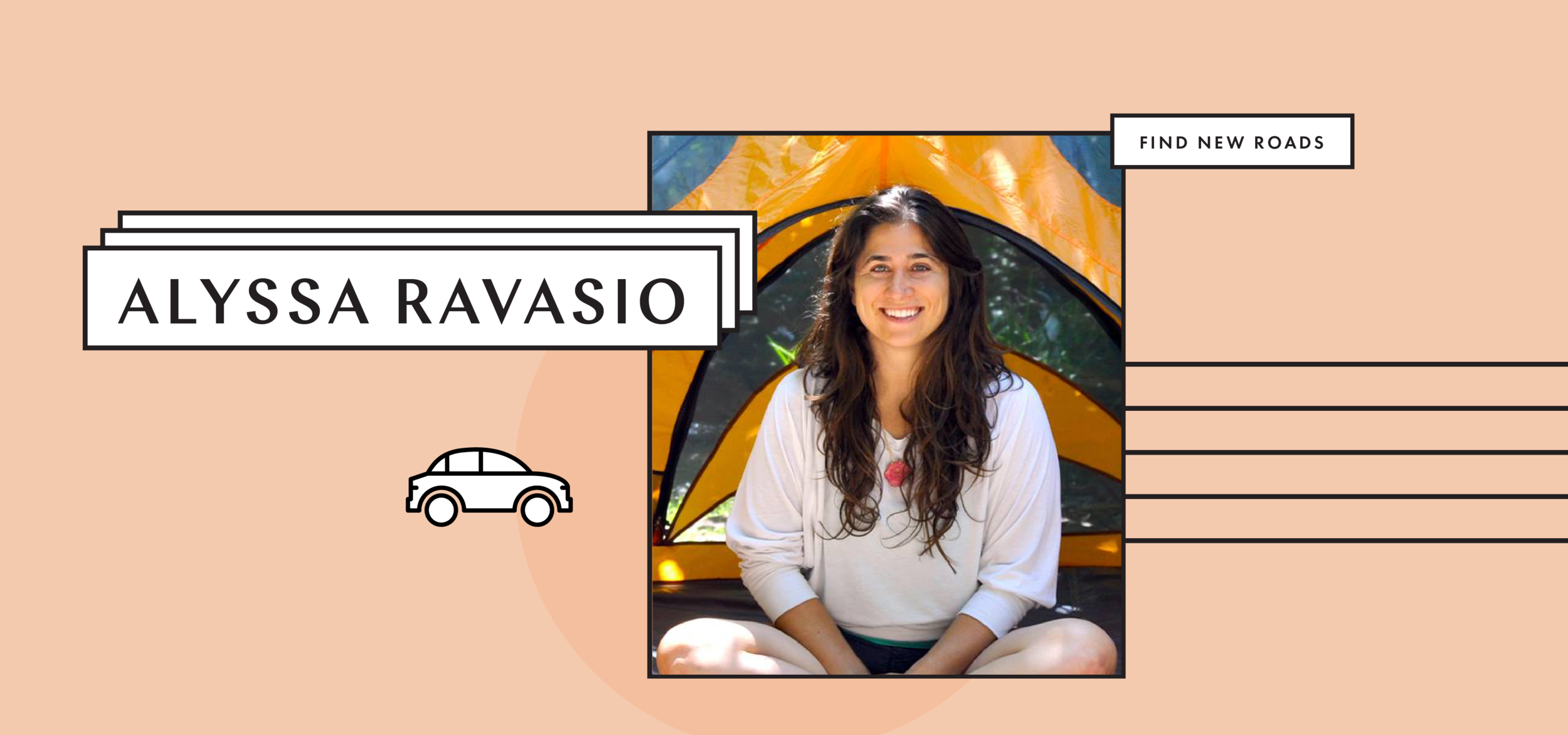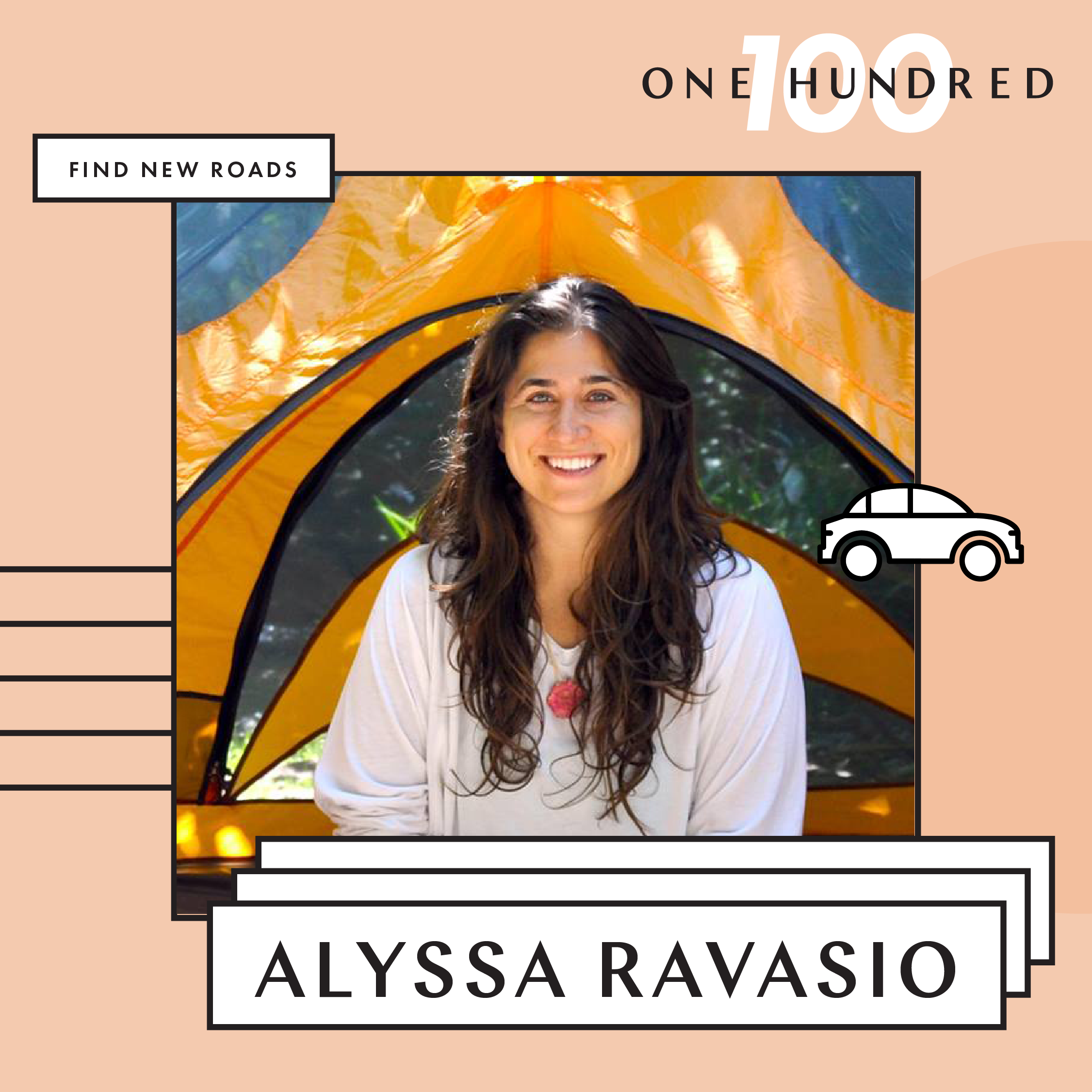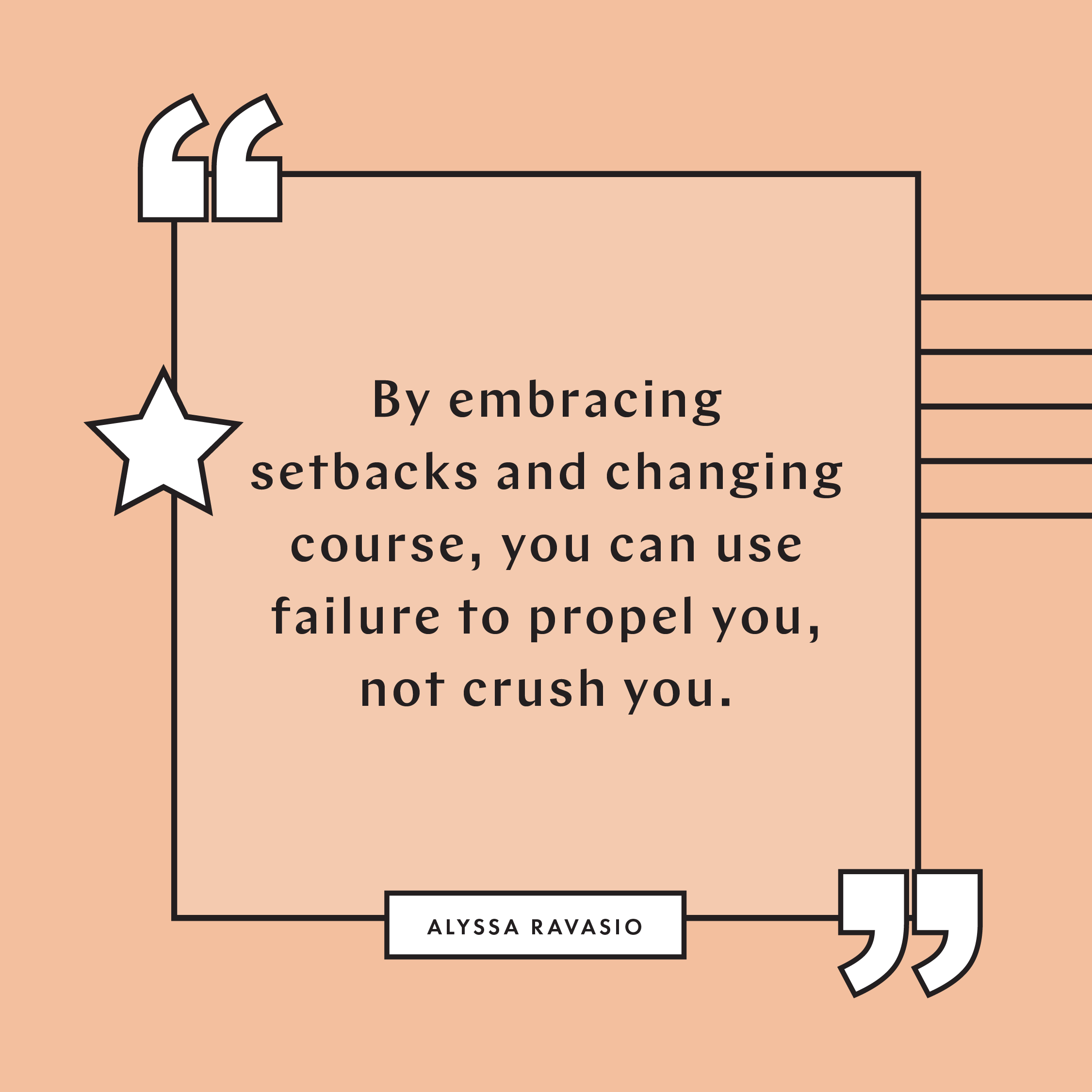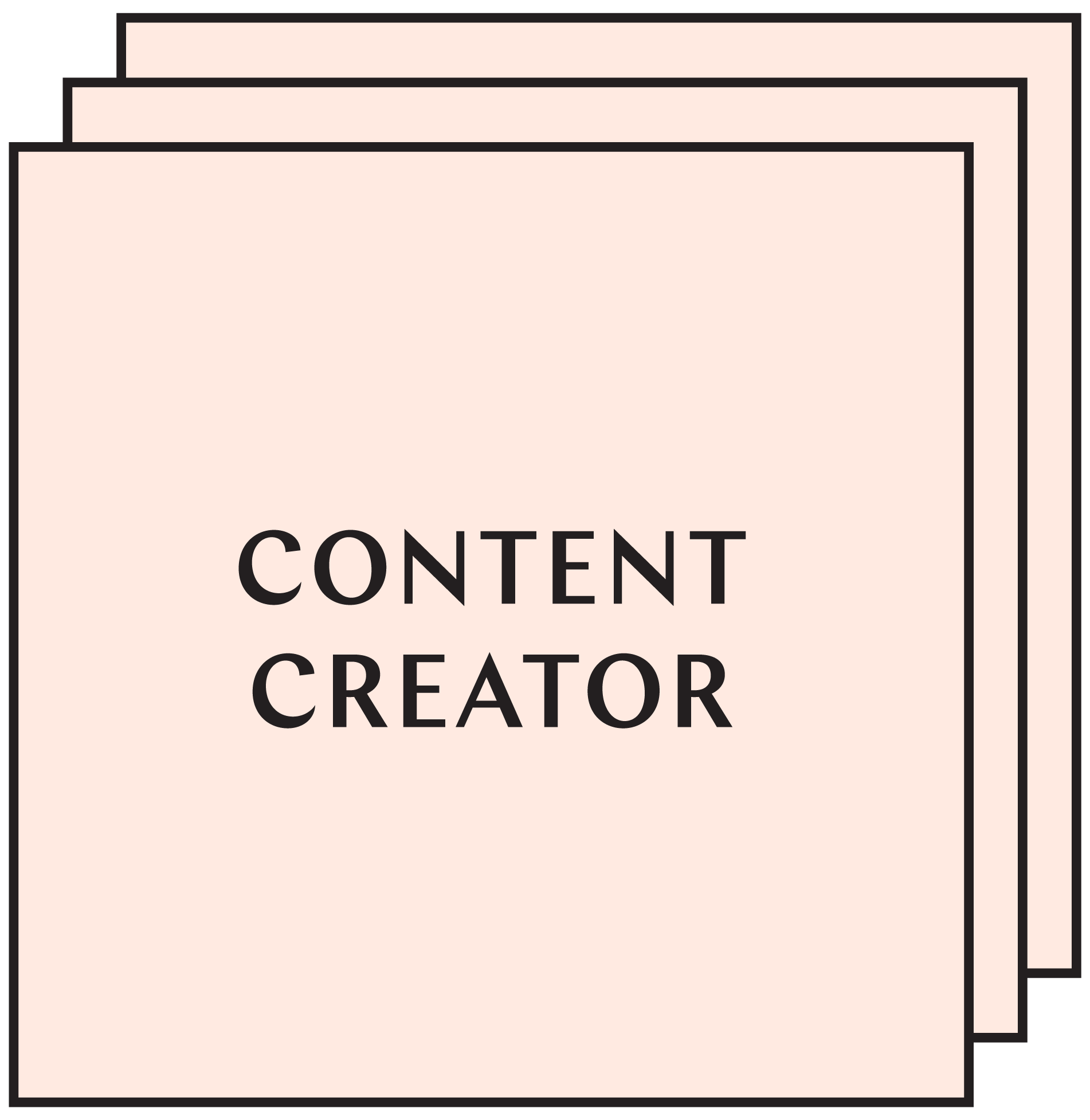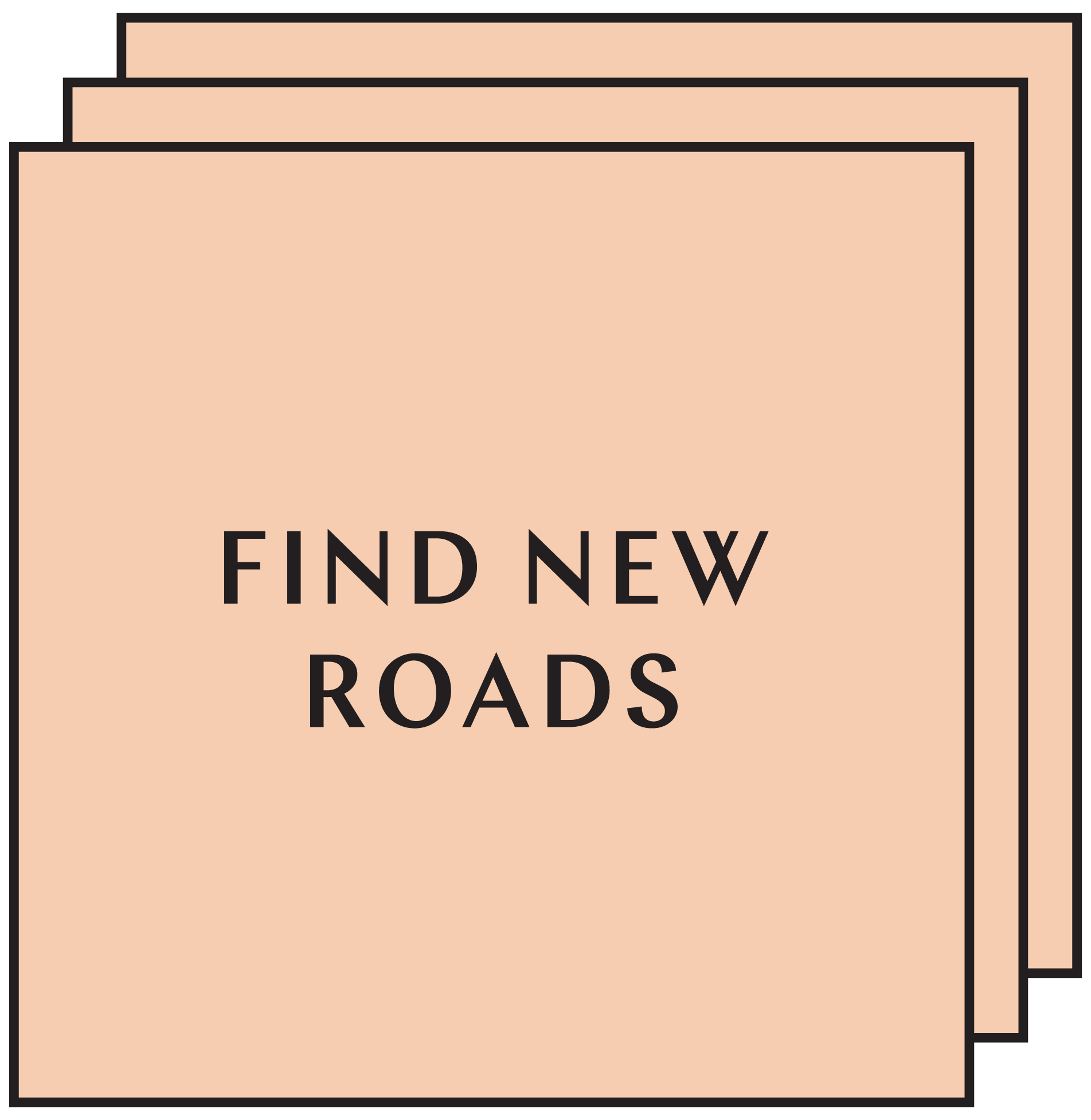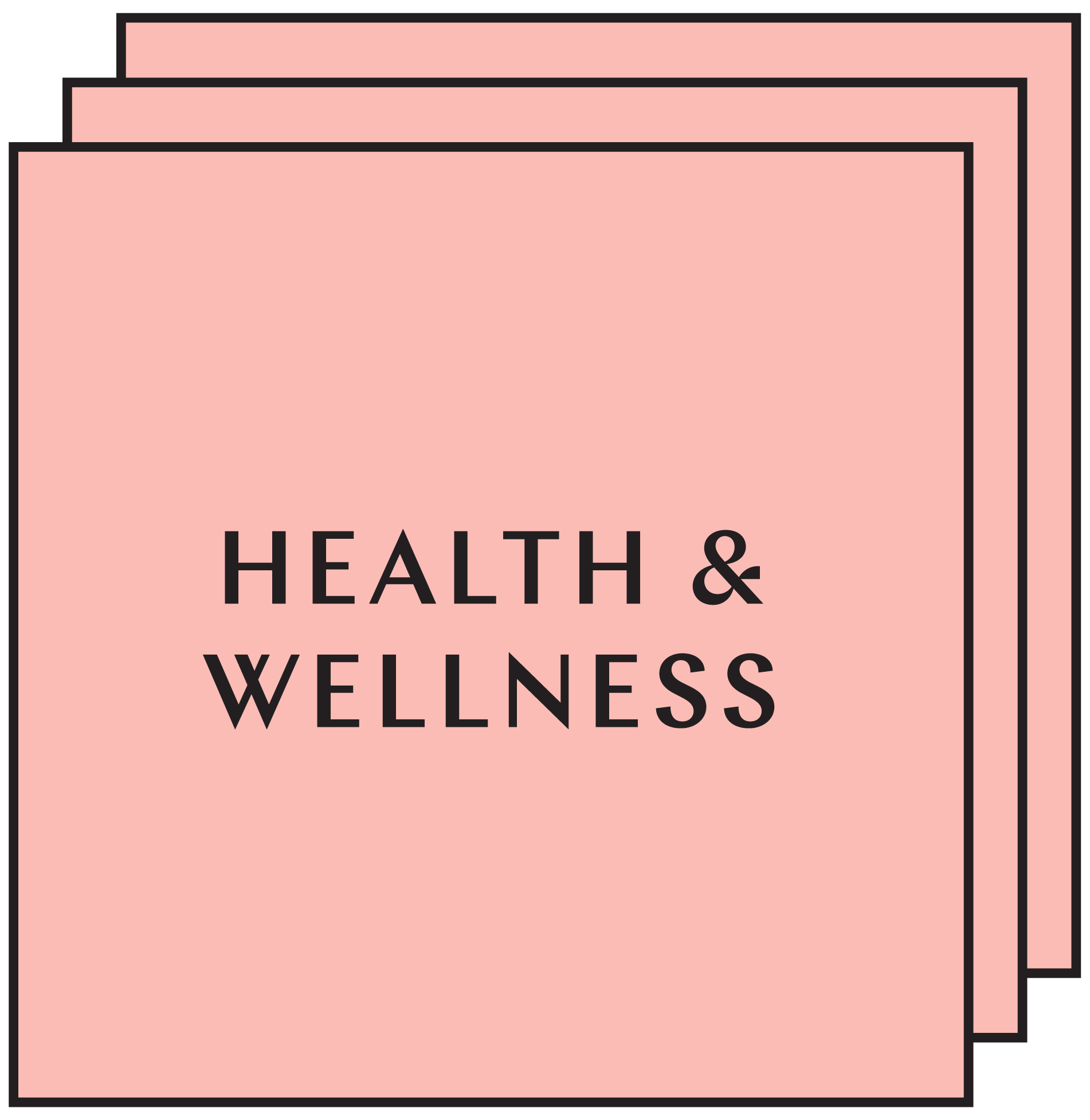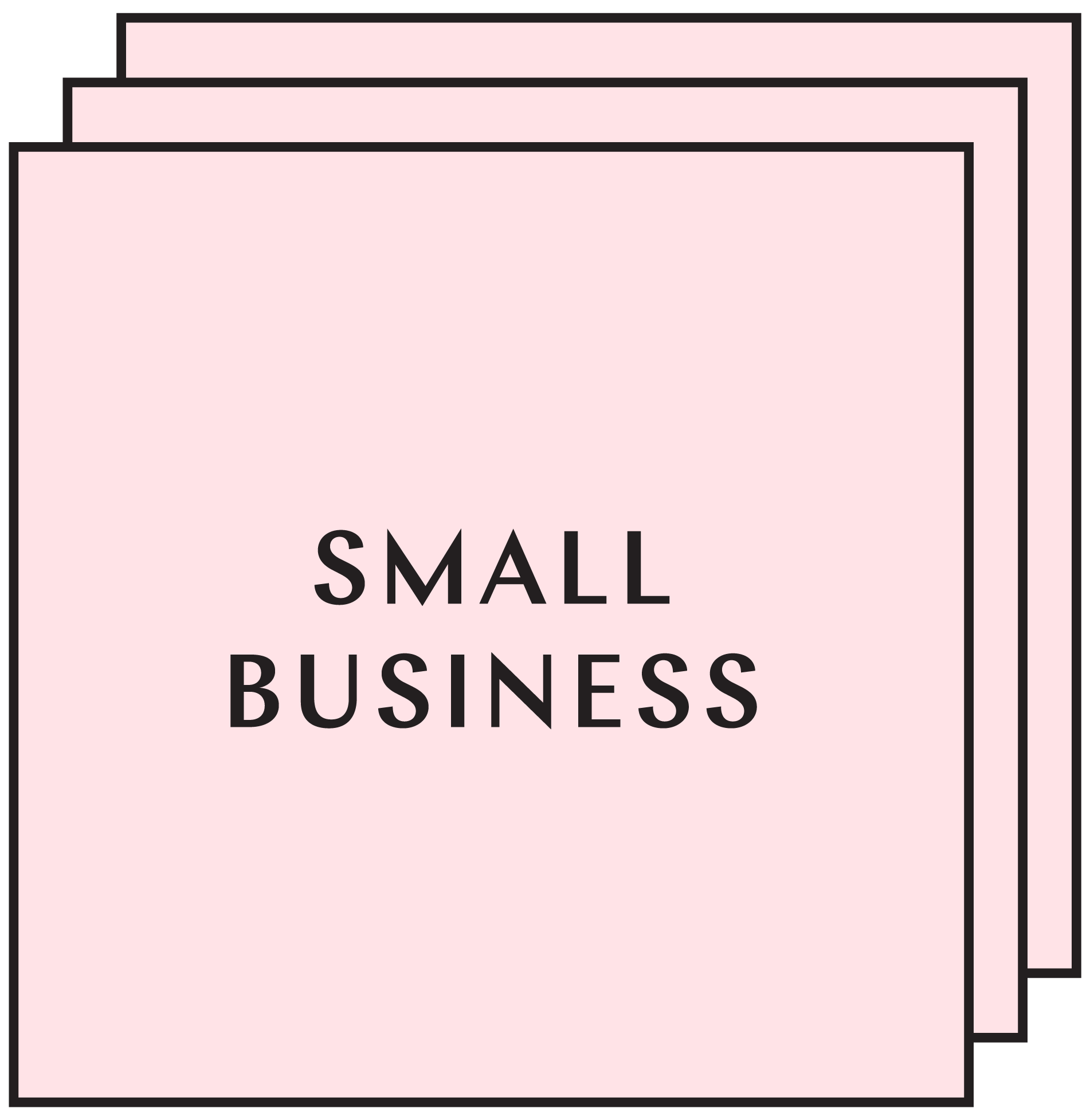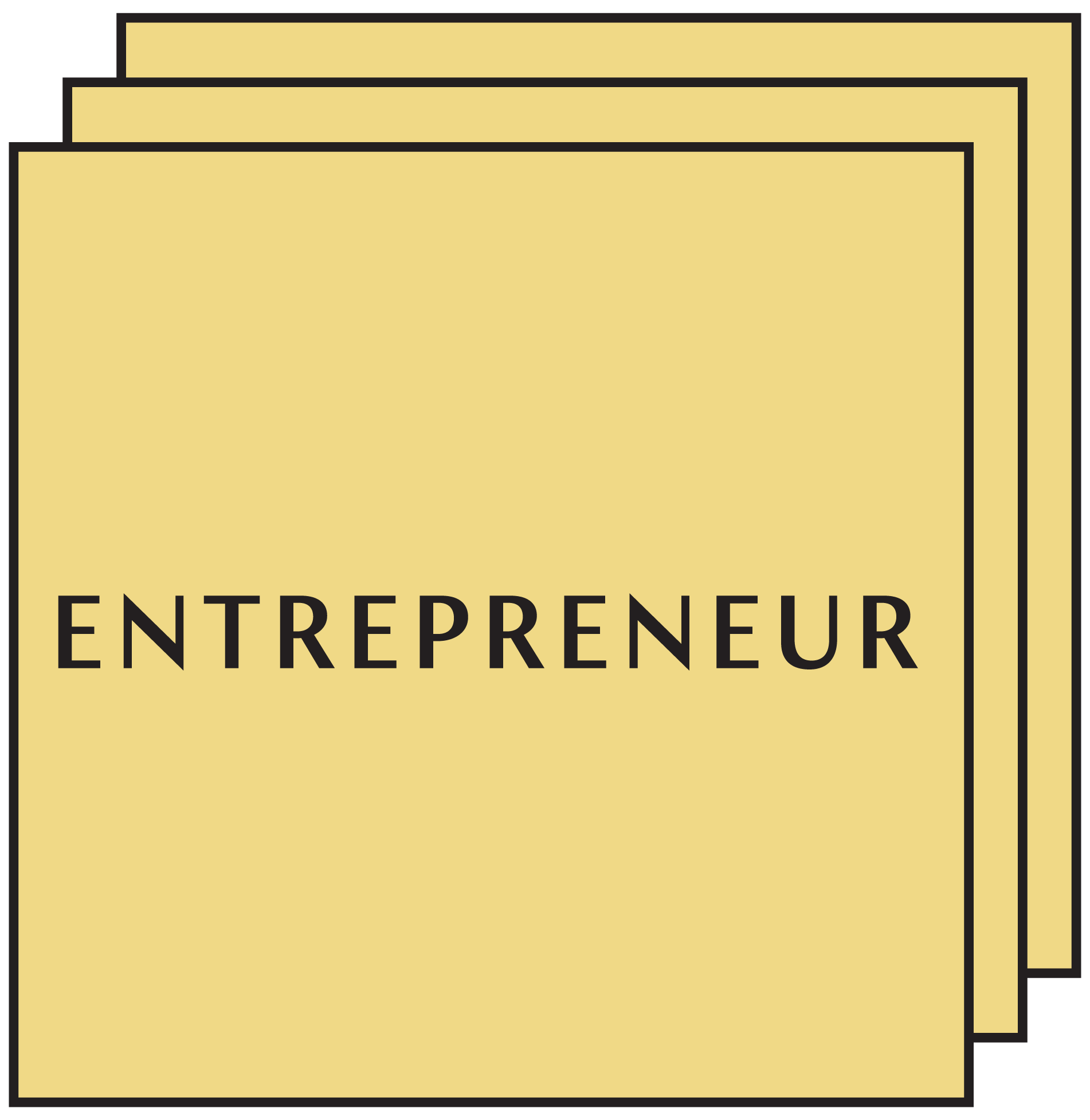There’s nothing quite like the solace and inexplicable comfort that nature can bring. For Alyssa Ravasio, that childhood obsession turned out to be the impetus behind her new company. With her mission to simply get more people outside, Ravasio founded her company, Hipcamp, in 2013.
The online platform for booking unique camping experiences (basically, the Airbnb of finding campsites, cabins, RV parks, public parks, and more) was incredibly successful very quickly—in 2014, they received $2 million in seed funding. Their biggest turning point was connecting private landowners (including farmers, vintners, and ranchers) with millennial campers. Hipcamp now has over 300,000 campsites, glampsites, and RV sites on the platform on both public and private land. But Ravasio is just getting started. Case in point, the savvy entrepreneur kicked off 2021 by raising $57 million, bringing her startup’s valuation to a staggering $300 million.
Read on to learn what led her to choose an unconventional career path, how she navigates being a female CEO in the male-dominated outdoor industry, and her advice for aspiring entrepreneurs.
CREATE & CULTIVATE: When you decided to start Hipcamp you learned to code and built the original platform yourself. How did you teach yourself? Why did you choose to do it yourself? Would you recommend this route to others?
ALYSSA RAVASIO: I went to a wonderful immersive boot camp program in the Bay Area called Dev Bootcamp, which is, sadly, no longer running. I decided to learn to code on my own largely because I wanted to have direct control over the product I was creating. At first, I searched for a technical co-founder to help me build the site, but found myself running into an awkward problem: rather than wanting to build a company with me, the people I was meeting were more interested in dating than in being business partners. At that point, I figured it would be best to create the first version of Hipcamp myself, and I’m really glad I did. Now, I have a strong technical foundation that has helped me build informed relationships with technical leaders as well as drive our overarching business and product strategy.
When you hit a bump or hurdle in your career, how do you #FindNewRoads + switch gears to find success?
I think success—and this has been my experience, personally—comes as a direct result of bumps, hurdles, and failures, not in spite of them. In fact, I think the worst things often become the best as time goes on if you can stay centered and have the right mindset. Hipcamp, as it exists today, is a direct result of many major bumps and hurdles.
The easiest way to switch gears is by recognizing challenges and setbacks as new, unforeseen opportunities. By embracing setbacks and changing course, you can use failure to propel you, not crush you. I think of creating a company, and living, really, as best done as an act of co-creation with the Universe at large. Sometimes, failure means I need to push harder. Sometimes, it means the Universe has a better idea than I did on how to achieve the impact I set out to create. Listening, and intuiting how to best move forward, is the ultimate meta-skill in my book.
“I think success comes as a direct result of bumps, hurdles, and failures, not in spite of them.”
What inspires you? And what led you to choose an unconventional career path?
What inspires me is doing work that can have a widespread, positive impact on people and the planet. In particular, it became very clear to me in college that the internet was going to radically transform our culture and this impact was going to be largely defined by who learned to use it! When I realized this, I became very passionate about learning how to harness the power of the Internet to create the world I wanted to live in.
I was fortunate enough to grow up camping with my family, and in spending my formative years outside, I realized it was in nature that I connected most with myself, with others, and the world at large. Being outside made me realize my own resilience, strength, and uniqueness. So harnessing the power of the internet to foster the same kind of powerful connections between individuals, communities, and ecosystems is a total dream for me, an endless source of inspiration.
You promote "camping culture" at your company and encourage employees to make use of the site. Why is this mentality important? How did you choose how to shape your company culture?
Our mission is to get more people outside, and I believe that the brands that change the world are the ones that are deeply and truly aligned and authentic, at all levels. The deeper you dive into a great brand, the more real and tangible the way it makes you feel should become. And so to achieve this, of course, it’s essential that our team gets outside! We offer all full-time team members an annual Hipcamping budget so that they can get outside, meet our inspiring hosts across the country, and have fully-immersive Hipcamping experiences.
I’ve found that I’m my most productive and efficient when I’ve gone away on a camping trip: I’m more refreshed, more creative, and more present when I return to work. Thankfully, science overwhelmingly supports how revitalizing being outside is for human health and happiness. And it just so happens that happy, healthy people make for the best colleagues and partners in building a transformative business. It also helps that our business is directly tied to getting more people outside, so having employees who actively live our mission supports them in having a deep, first-hand understanding of our community and our product, which is essential as we’re centered on people and experience.
What is the biggest work challenge or mistake you’ve faced? What did you learn from it?
In its first iterations, Hipcamp was originally a resource to help people find as much information as possible on campsites on public land (that is, state and national parks). We didn’t start working with private landowners until later. In 2015, our access to public campground data was suddenly stripped away and we had to figure out an entirely new business model, seemingly overnight.
By that point, we had repeatedly heard from campers that, although our platform was helpful, it ultimately didn’t solve the biggest problem people were facing, which was that most public campsites were often booked months in advance. And if they weren’t entirely booked, they were intensely overcrowded. There just weren’t enough great places to camp.
This massive challenge ultimately led us to partner with private landowners to unlock access to new, undiscovered places to camp, which turned out to be the most impactful way for us to achieve our mission of getting more people outside—by solving the real underlying problem of a shortage of supply, as well as sustain our business long term. This was a great example of the worst thing, losing access to this data, was actually the best thing, in that it forced us to think creatively about how to really solve the problem.
Some of the best advice I ever received (from the amazing Poornima Vijayashanker) on how to start a startup was to fall in love with a problem, not your solution—the universe might have a better idea for you!
The outdoor industry is still quite male-dominated. How do you navigate being a female CEO in that industry? What advice do you have for other women looking to do the same?
I view it as a competitive advantage in that it’s socially acceptable—socially encouraged, even—for women to express vulnerability, lead with love, follow intuition even when the logic isn’t fully supported by data, and prioritize relationships. And there’s so much power in these qualities.
With more women leaders (generally, and in the outdoors space), I think we are seeing a culture shift toward more empathy, understanding, collaboration, diversity, and community-building. That’s not to say that women are necessarily better in these areas, but we’re supported and expected by society at large to lean into these skills, which may make us more apt to use them. Ideally, I hope our culture continues to evolve in a way that supports men to prioritize vulnerability and relationships in kind. Leaders (and people everywhere) should feel free to expand beyond strict gender norms and embrace the fullness of their humanity.
For women who are looking to lead in male-dominated industries, I think the most important thing to remember is that the ways in which you’re “different” from people’s expectations may very well be your superpower—embrace this.
I also think it’s incredibly important to remember that not all women have access to equal opportunity. Women of color, trans-women, queer women, women of low-income backgrounds, women with disabilities, and more all have unique and in some cases compounded challenges to overcome—as well as strengths to leverage. Learning how to be good allies for each other and not assuming all women face the same type of challenges is essential.
As a tangible example of this, I once attended an inspiring women’s summit hosted by the one and only Teresa Baker, where a well-intentioned CEO encouraged the women in the room to ask for what they’re worth. An African American woman stood up and shared that she felt she, and many women who share her culture, have been taught this from a young age. And the biggest challenge they face in the workplace isn’t fear of asking for what they’re worth, but rather facing punishment and discrimination for being “too aggressive.” It was an uncomfortable but super important and transformative moment. Respecting and seeing this diversity of experience is key, simplifying into simple slogans like “lean in” can be damaging in that they can perpetuate problematic white-centered mindsets.
I also think it’s critical to not demonize “the men.” Considering the reality that men currently hold the vast majority of power and influence in our society, I think it’s also important, essential even, to allow people the space to evolve. Giving people grace, assuming best intentions, and approaching situations with empathy and compassion can help us grow together, and I think are approaches that are too often left out in movements for social transformation. Leave space for others to join you!
With success comes opportunity, but that also means you have your hands full. What keeps you inspired and motivated to keep going even on your most challenging days?
Knowing that the community we’re building has the power to move our culture forward toward a fundamentally different relationship with nature. We’re supporting people to forge stronger relationships with the outdoors, their friends and families, and themselves. We’re supporting people to be happier and healthier. We’re building a community between rural and urban communities through literal common ground. We’re supporting landowners to keep their land undeveloped and infusing much-needed economic capital in rural economies. We’re supporting regenerative agriculture and the protection of habitat and wilderness corridors at scale.
And perhaps most importantly, we’re empowering people to realize they are part of nature, and that to overcome the incredible climate, biodiversity, and environmental crises we’re facing, people must become the solution, not feel bad about how they’re contributing to the problem. That’s why “leave it better” is our most important company value. And on hectic days, it’s helpful to remember that what we’re doing is worth it.
“Take care of yourself! Sleep-deprived, unhappy, unhealthy people rarely achieve great things.”
What advice do you have for other entrepreneurs? How can they achieve the same success you've experienced?
This depends largely on what stage of entrepreneurship you’re at. If you’re just starting out and figure out what to build, I love to share advice that I received from Reddit co-founder Steve Huffman back when I was at Dev Bootcamp grappling with whether I should start Hipcamp or work for another company.
If your answer is “yes” to the following questions, then you should move forward in building your business:
Does your product/company solve a problem that you’ve experienced?
Does your product/company solve a problem that other people have experienced?
Will people pay you to solve this problem?
As far as achieving success goes, aside from “fall in love with the problem, not the solution” which is so key, I’d say take care of yourself! Sleep-deprived, unhappy, unhealthy people rarely achieve great things. While there are, of course, moments that require long nights, sometimes many in a row, remember that if you’re successful you’ll be earning the right to keep doing this for decades. I think Richard Branson’s top advice here is great: exercise! Stay humble. Keep learning. Failures are inevitable and can create incredible opportunities. Prepare to face your shortcomings, fears, and demons, head-on, again and again.
As your company scales, you’ll realize most cultural problems are actually just “you problems” reflecting back at you through the incredibly humbling mirror of your team. In fact, most problems are best solved by first accepting you are playing a role in their creation, accepting and examining this (while not accepting all responsibility when it’s not warranted, of course), can be a massive time-saver.
And then, of course, the most important thing of all—keep going! Never, ever, ever give up. Personally, I believe this is the largest determinant of success of all. It’s basic math—the longer you play, the more turns you get, and the more likely it is that you’ll win. Of course, it’s critical to recognize how this ability to keep going is often dependant on coming from a family with resources. It can be a privilege to be able to keep going—I know it was for me, my parents would have happily housed and fed me if Hipcamp had totally failed. This allowed me to spend all my savings (and then some!) to get it off the ground. So I want to recognize that my success is in some ways, not just a result of my imagination, tenacity, and other skills—it’s also a reflection of my privilege.
What is the #1 book you always recommend? Why?
I am an avid reader with towers of books constantly at risk of falling over, so this is really too hard, especially since it depends so much on the person I’m recommending to.
Here are a few:
Braiding Sweetgrass by Robin Wall Kimmerer. She’s an amazing indigenous leader and teacher, and the book centers on the philosophy that people are part of nature, and how we have a responsibility to play our part in the ecosystem. A tangible example of this is that sweetgrass grows better when it’s responsibly harvested. “Leave it better” is really based on this mindset—at Hipcamp, we believe people can have a positive impact on the planet and believe it’s that kind of framing—versus a limited focus on reducing our negative impact—that will lead us to a healthier, more connected, and more regenerative future.
East of Eden by John Steinbeck. No book I’ve ever read more deeply captures the essence of humanity, in all its beauty and complexity.
The Overstory by Richard Powers. A deep examination of the relationship between people and trees.
Full Moon Feast by Jessica Prentice. A philosophical exploration of the culture around seasonal foods for both European cultures and indigenous American cultures. Plus great recipes.
VIEW THE FULL CREATE & CULTIVATE 100 FIND NEW ROADS LIST HERE.


